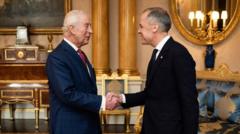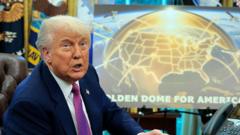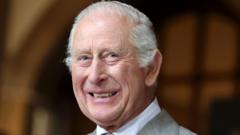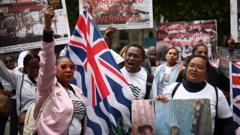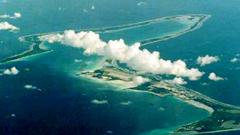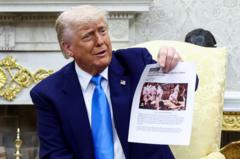Tensions arise in Panama as Donald Trump's comments about potentially reclaiming the Panama Canal prompt responses from officials and experts.
Trump's Provocative Remarks on Panama Canal Raise Eyebrows

Trump's Provocative Remarks on Panama Canal Raise Eyebrows
President-elect's comments stir historical anxieties in Panama regarding U.S. military presence.
In a recent statement that took many by surprise, President-elect Donald J. Trump implied that the United States might consider reclaiming the Panama Canal, even suggesting the use of force. This declaration, made during a press interaction at his resort, has sent ripples of unease through Panama, a nation with a tumultuous history involving U.S. military intervention.
While most citizens seemed to dismiss Trump's comments as bluster, officials took a strong stance. Panama’s Foreign Minister, Javier Martínez-Acha, reinforced the nation's sovereignty over the canal, stating unequivocally that it "belongs to the Panamanians" and that its control is "nonnegotiable." His statements reflect deep historical sentiments, as the canal's ownership has been a point of struggle and pride for the Panamanian people.
Political analysts have speculated that Trump's provocative remarks could be aimed at intimidating the Panamanian government, potentially in a bid to secure beneficial treatment for U.S. vessels navigating the canal. Moreover, his statements might serve as a larger strategy to influence regional dynamics regarding immigration flows toward the U.S. border.
Experts have warned that any such action against Panama would likely be seen as illegitimate and damaging to the U.S. image. Benjamin Gedan, director of the Wilson Center’s Latin America Program, commented that the notion of "invading Panama to recover the canal" would be akin to actions taken by authoritarian regimes, leading to instability in a crucial maritime hub.
As these developments unfold, the situation remains tense, balancing on a fine line between rhetoric and diplomatic relations. The world watches closely, recognizing that both historical context and contemporary geopolitics play critical roles in determining the future of U.S.-Panama relations.
While most citizens seemed to dismiss Trump's comments as bluster, officials took a strong stance. Panama’s Foreign Minister, Javier Martínez-Acha, reinforced the nation's sovereignty over the canal, stating unequivocally that it "belongs to the Panamanians" and that its control is "nonnegotiable." His statements reflect deep historical sentiments, as the canal's ownership has been a point of struggle and pride for the Panamanian people.
Political analysts have speculated that Trump's provocative remarks could be aimed at intimidating the Panamanian government, potentially in a bid to secure beneficial treatment for U.S. vessels navigating the canal. Moreover, his statements might serve as a larger strategy to influence regional dynamics regarding immigration flows toward the U.S. border.
Experts have warned that any such action against Panama would likely be seen as illegitimate and damaging to the U.S. image. Benjamin Gedan, director of the Wilson Center’s Latin America Program, commented that the notion of "invading Panama to recover the canal" would be akin to actions taken by authoritarian regimes, leading to instability in a crucial maritime hub.
As these developments unfold, the situation remains tense, balancing on a fine line between rhetoric and diplomatic relations. The world watches closely, recognizing that both historical context and contemporary geopolitics play critical roles in determining the future of U.S.-Panama relations.


